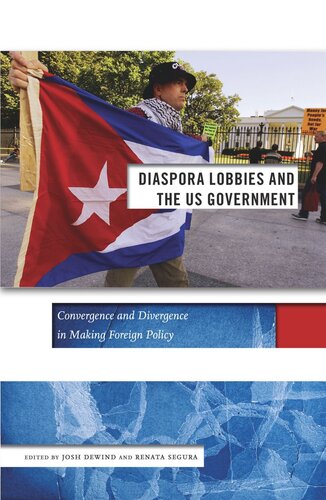

Most ebook files are in PDF format, so you can easily read them using various software such as Foxit Reader or directly on the Google Chrome browser.
Some ebook files are released by publishers in other formats such as .awz, .mobi, .epub, .fb2, etc. You may need to install specific software to read these formats on mobile/PC, such as Calibre.
Please read the tutorial at this link: https://ebookbell.com/faq
We offer FREE conversion to the popular formats you request; however, this may take some time. Therefore, right after payment, please email us, and we will try to provide the service as quickly as possible.
For some exceptional file formats or broken links (if any), please refrain from opening any disputes. Instead, email us first, and we will try to assist within a maximum of 6 hours.
EbookBell Team

5.0
88 reviewsAs a nation of
immigrants, the United States has long accepted that citizens who identify with
an ancestral homeland may hold dual loyalties; yet Americans have at times
regarded the persistence of foreign ties with suspicion, seeing them as a sign of
potential disloyalty and a threat to national security. Diaspora Lobbies and the US Government brings
together a group of distinguished scholars of international politics and
international migration to examine this contradiction in the realm of American
policy making, ultimately concluding that the relationship between diaspora
groups and the government can greatly affect foreign policy. This relationship
is not unidirectional—as much as immigrants make an effort to shape foreign
policy, government legislators and administrators also seek to enlist them in
furthering American interests.
From Israel to Cuba and from Ireland to Iraq, the case
studies in this volume illustrate how potential or ongoing conflicts raise the
stakes for successful policy outcomes. Contributors provide historical and
sociological context, gauging the influence of diasporas based on population
size and length of time settled in the United States, geographic concentration,
access to resources from their own members or through other groups, and the
nature of their involvement back in their homelands. This collection brings a fresh
perspective to a rarely discussed aspect of the design of US foreign policy and
offers multiple insights into dynamics that may determine how the United States
will engage other nations in future decades.